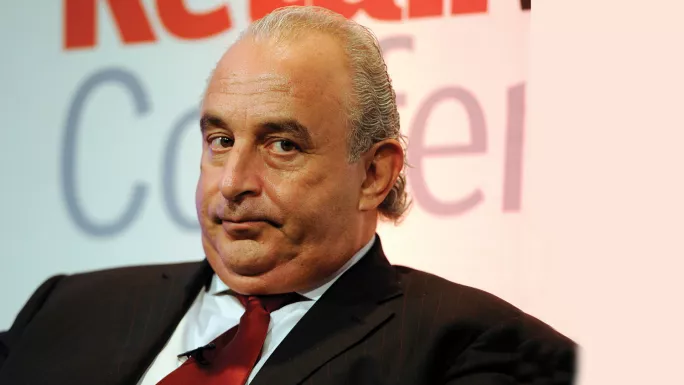Winners and losers of 2016: TESS’ end-of-year report

For many, 2016 will go down as one of the worst years in recent memory. It started with many of our favourite celebrities dying, peaked at June’s Brexit vote and ended with a “Trumpocalypse”. But how has the year panned out in the education world? We take a look at the winners and losers.
Winners
Probationers
There was a time not so long ago in Scotland when new teachers were about as likely to find a job as Ed Balls was to discover a sense of rhythm (note, TESS loves Ed Balls).
But that time has passed and now new teachers are able to take their pick of the posts, especially if they happen to be trained in home economics or maths.
TESS has heard tales of school leaders going on madcap adventures to secure these rare creatures in scenes that would make the Planet Earth production crew baulk.
Now, the government has announced a £1 million investment into new routes into teaching, in a bid to improve teacher recruitment. Clearly schools will welcome anything that eases their pain, but it’s hardly a princely sum and availability of headteachers remains a major issue.
Before education secretary John Swinney decides to rip up Scottish education and start again via his governance review, we humbly suggest he tries sorting out staffing first. The current shortages might be good news for new teachers, but they are undoubtedly bad news for schools.
Modern studies
What fodder: from the broken promises of Brexit to the triumph of Trump, this year has given modern studies teachers plenty to talk about. On 23 June, the nation was split in two by the referendum and some teachers of the subject said they were daunted by the prospect of steering their young charges through such turbulent times.
Certainly, recent events have reduced some pupils to tears, while headteachers report that others are now more willing to express unacceptable views. Academics at the University of Edinburgh’s Moray House School of Education also warned recently that race was back on the agenda in schools.
All of this comes at a time when we are being told that many subjects are marginalised in secondary. Surely, given the current climate, we sideline modern studies at our peril?
All teachers
Bear with us. It might not feel like teachers have a great deal to celebrate when school budgets are lower than Theresa May’s personal leather-trouser fund (Theresa May and Angela Merkel pictured, below). Heads have been threatening to “build a wall” around the photocopier and classroom assistants are as rare as sympathy for former MP Zac Goldsmith. But those at the chalkface have won a couple of battles this year: unit assessments are being scrapped, for one. John Swinney has also admitted to being “stunned” by the levels of bureaucracy facing schools and has committed to removing much of it.
Of course, we’ve been here before. For years, the need to tackle bureaucracy has been on the government’s radar and Mr Swinney’s August report on the topic is the third in recent times. However, he has the air of a man who means business - his education delivery plan has 117 actions. So, we say let’s be optimistic. For now.

The new principal of Fife College
Hugh Hall, a chartered accountant and chair of Forth Valley College, was hired as the principal of Fife College earlier this month. It was a surprise appointment for many, as he has scooped one of the very top jobs in FE, despite it being his first full-time role in the sector. Fife College is one of Scotland’s largest and he will be responsible for 22,000 learners spread across four main campuses. But being an accountant by background, it may be that he is just the man for the job, running a college that in its previous incarnation was accused of misusing funds. A numbers man could be just the ticket.
Losers
John Swinney
As finance secretary, John Swinney steered Scotland through the worst economic disaster since the Great Depression. He was in the role for nine years before Nicola Sturgeon made him cabinet secretary for education in May. Now, he has been charged with closing the attainment gap when all the information - from the Scottish Survey of Literacy and Numeracy to Pisa - would suggest that things are moving in the wrong direction. Economic disaster or not, we all know which role he is going to find more challenging.
At the very least, Christmas dinner will be a little more awkward in the Swinney household this year. His brother, David, is the Scottish Qualifications Authority principal assessor for English - and John Swinney recently said that the organisation was failing in its core purpose.
Parents’ evenings
Parents’ evenings are an institution, yet we all know what they mean for families: sprint home from work; pour your dinner down your throat; shout at the kids; jump back in the car; speed to the school; hurl yourself across the car park and through the main entrance. Then ricochet along corridors at top speed until you find the right teacher. Finally, you arrive for your 10-minute sit-down looking dishevelled and sweaty. You spend the one-to-one barely able to breathe, let alone hold a sensible conversation, then it’s back on your feet and off to find the next pedagogue.
Unsurprisingly, Eileen Prior, the chief executive of the Scottish Parent Teacher Council, recently argued in TESS that there might be a better way to do things, describing parents’ nights as a “nightmare” for both teachers and parents.
N4
Pupils and teachers seem to have about as much faith in this qualification as those outside the United States have in Donald Trump being a foreign-relations whizz.
An analysis by education academic Lindsay Paterson shows far lower uptake of N4 than the previous qualifications set at the equivalent level. In 2016, there were 115,000 awards at N4 - a drop of 36 per cent when compared with awards at Standard Grade general and Intermediate 1 in 2012. The number of awards at N4 had also fallen from 122,000 in 2015.
There seems to be a view that an external exam could raise the status of the internally assessed N4 and make it more desirable. Whatever, only billionaire Philip Green (pictured, below) has more work to do to improve his reputation.

Councils
Councils must be regretting ever having shown their teeth last year when it came to maintaining teacher numbers. Their refusal to sign up to a collective deal and the embarrassment it caused the government is regarded as one of the reasons behind the root-canal surgery now in the pipeline for the system.
Mr Swinney launched the government’s review of how education is run in September. The plans at this stage are vague, but it looks like local authorities could have a decent chunk of the biggest budget they manage - education - wrested from them and handed directly to schools.
Meanwhile, the two changes the government has been clear about are also bad news for councils: responsibilities that currently sit with them will be handed to schools and regional boards will be introduced to force - sorry, “encourage” - councils to collaborate.
You need a Tes subscription to read this article
Subscribe now to read this article and get other subscriber-only content:
- Unlimited access to all Tes magazine content
- Exclusive subscriber-only stories
- Award-winning email newsletters
Already a subscriber? Log in
You need a subscription to read this article
Subscribe now to read this article and get other subscriber-only content, including:
- Unlimited access to all Tes magazine content
- Exclusive subscriber-only stories
- Award-winning email newsletters